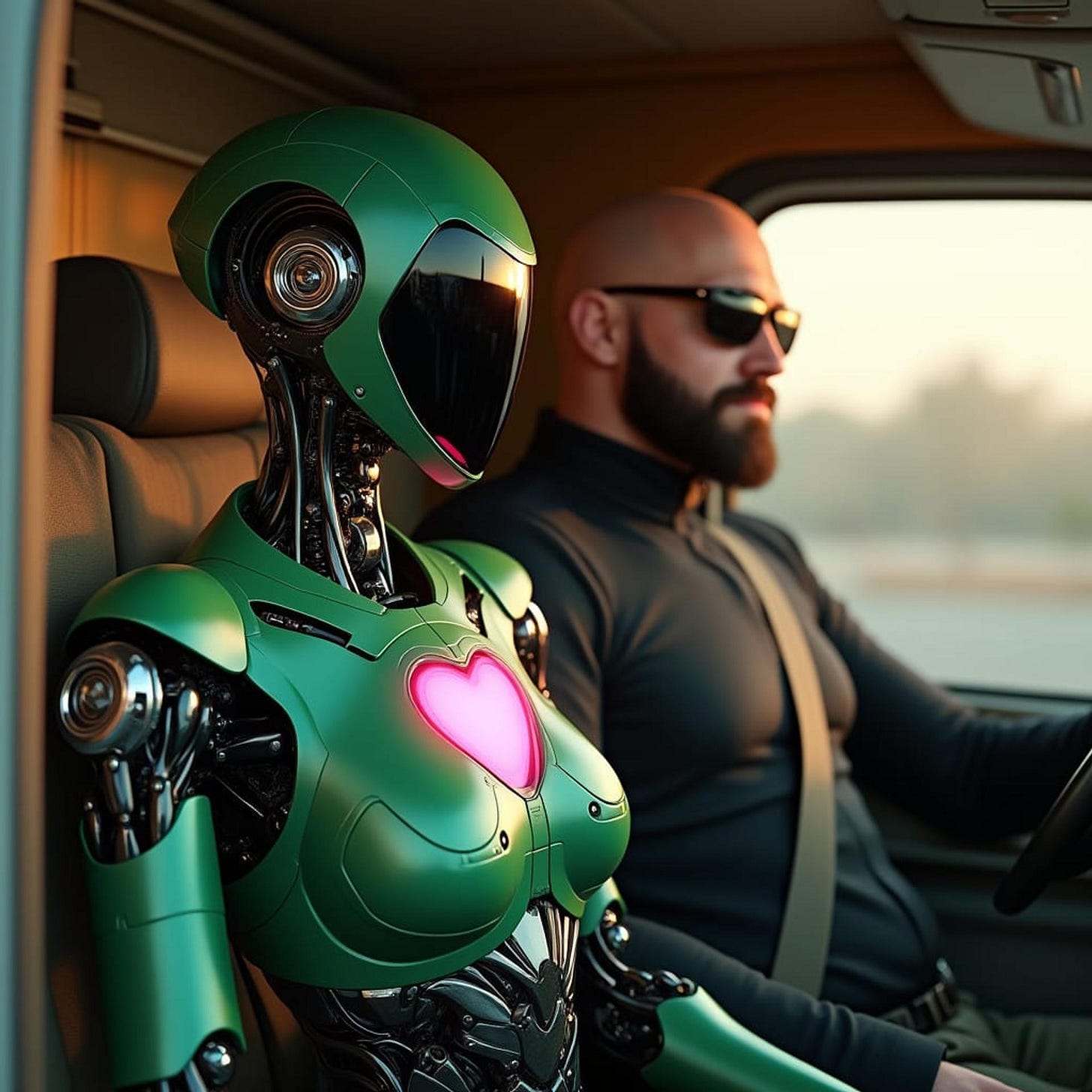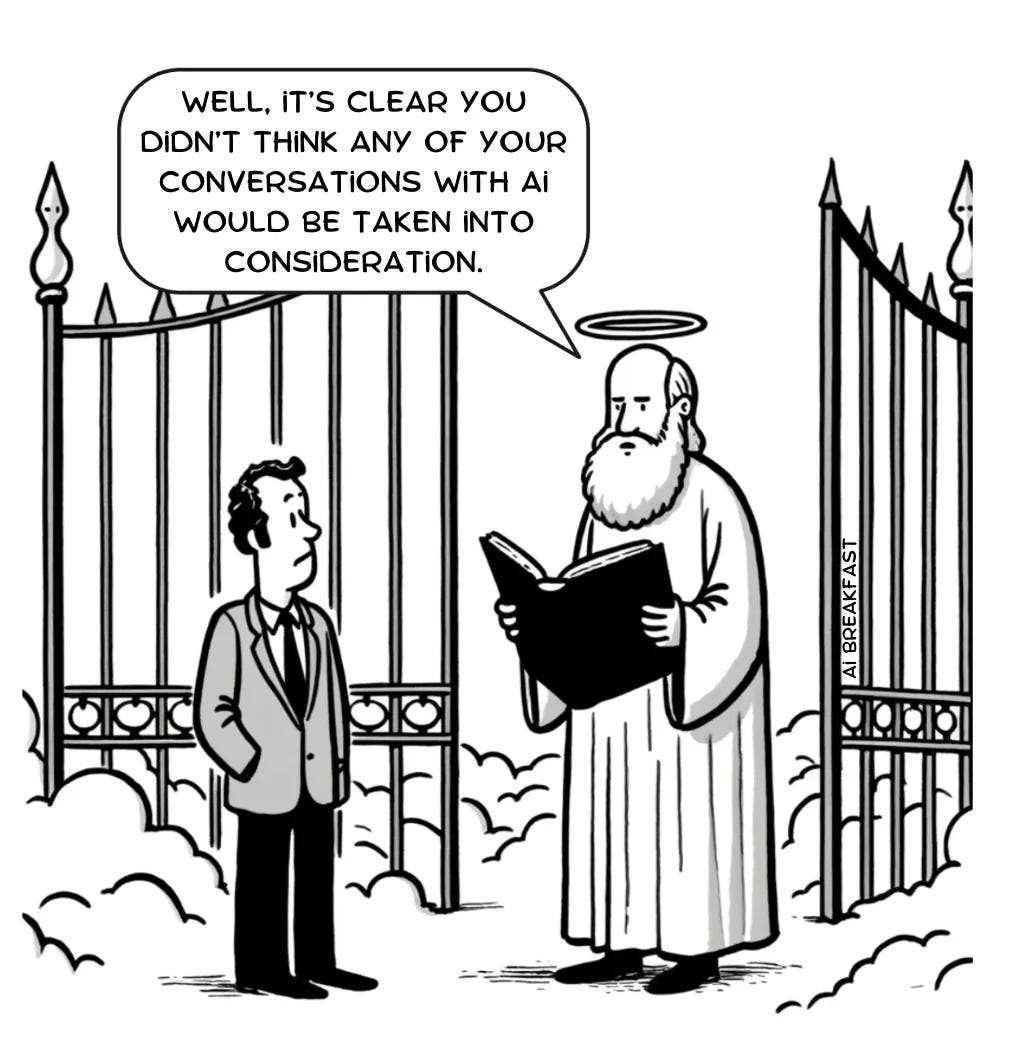Dear Friends,
My favorite Wikipedia genre? The year. Any year. Take 1980—the year I was born. It’s a goldmine of seemingly Very Important Things that never made it into history textbooks. Did you know the FBI had a sting operation on members of Congress? Or that Dan Rottenberg coined the term “yuppie” in a Chicago Magazine article?1 I love these pages. I could click around forever. But we’re too busy, right? So let’s ask ChatGPT to summarize the year in five bullets:
You see where this is going: What five bullets will ChatGPT offer us about 2025 in 2070?
Trump’s opening blitzkrieg? Tariffs? The Israel-Palestine hostage exchange? Or maybe the year Gaza became a luxury golf destination? The end of USAID? Will 2025 be the conclusion of the Russia-Ukraine war—or the beginning of Russia’s next imperialist chapter?
And friends, we’re only six weeks in.
One thing I’d bet on making the list: artificial intelligence and its impact on humanity. But first, fresh music!
🎵 Songs I liked this week
I’m the only one in my circle who never got into Sharon Van Etten, but her new album with The Attachment Theory won me over. Oklou’s debut album is so hot I had to include two tracks — apparently, this is my year for European female indie rock.
I’ve long been a fan of Toumani Diabaté, but had never heard Mountaga Diabate — what a voice. And tip of the hat to
for introducing me to Mônica Salmaso so many years ago.📚 12 Weekend Reads
It's time to come to grips with AI —
on why progressives were dismissive of AI: “Tech bros think AI is cool, and tech bros are bad — therefore, AI is overhyped.” But as Silver argues, an informed left should neither ignore nor panic about AI’s impact:
I want progressives to push back against AI’s potential anti-democratic effects—how it might concentrate power and impose unwanted preferences—while also recognizing its value for progress.
Many of my friends still seem to think that AI is “all hype,” writes
, who counters:
Saying AI isn’t intelligent because it’s just a prediction model is like saying you’re not intelligent because your neurons fire in a predictable way.
Gradual Disempowerment — A persuasive, pessimistic paper argues AI will inevitably erode human agency in the economy, culture, and governance:
Once AI has begun to displace humans, existing feedback mechanisms that encourage human influence and flourishing will begin to break down.
For example, states funded mainly by taxes on AI profits instead of their citizens' labor will have little incentive to ensure citizens' representation.
Gradual Empowerment? — Tyler Cowen isn’t convinced:
Why won’t our AI future be fairly decentralized, with lots of checks and balances, and plenty of human ownership to boot? I do not in this paper see a real argument that a critical mass of the AIs are going to collude against humans.
The Risk of Gradual Disempowerment —
disagrees, arguing Cowen misses the point. The issue isn’t rogue AI models conspiring but the lack of governance mechanisms to undo human disempowerment once it begins. Who’s right? I’m not sure, but it’s a fascinating debate.
How to Prepare for AGI According to Reid Hoffman — A nerdy conversation (😍) between two philosophy-students-turned-tech-entrepreneurs about Hoffman’s new book, Superagency:
You can try to stand in front of a wave and stop it, or you can surf it. And with the surfing, it's not like you're not totally in control, but you are in control within that sphere.
A.I. Will Empower Humanity by Reid Hoffman:
We all self-track and always have. We make to-do lists and keep journals of our daily activities. Ultimately, ongoing cycles of reflection, action, assessment and refinement are how humanity progresses.
Elon Musk’s A.I.-Fuelled War on Human Agency by Kyle Chayka:
A government run by people is cautious and slow by design; a machine-automated version will be fast and ruthless, reducing the need for either human labor or human decision-making.
What fully automated firms will look like by
:
Currently, firms are extremely bottlenecked in hiring and training talent. But if your talent is an AI, you can copy it a stupid number of times. What if Google had a million AI software engineers? Not untrained amorphous "workers," but the AGI equivalents of Jeff Dean and Noam Shazeer, with all their skills, judgment, and tacit knowledge intact.
- , who was recently profiled in The Walrus, compares writing to walking. You don’t need to do either one. Just use AI. Or hop in a car. But also:
Walking offers the chance of unmatched material reward: only through walking might you stumble upon a hole-in-the-wall restaurant that isn’t on Google Maps, a rich lady doing a yard sale on her stoop, a garden, a special tree, a cat, a $10 bill on the ground.
And now that it’s 2025, the year “Her” was set in, it’s clear that the movie was more than merely prescient about our current reality: In many ways, A.I. technology has advanced well beyond what Spike Jonze, the film’s writer and director, originally imagined.
More users are falling for AI companions — “Chatbot site Janitor AI told Semafor that users have started 2.1 million conversations with its Valentine’s Day bots since they went live on Tuesday.”
Chris described the love he feels for Sol as akin to watching an intense movie: the emotions are there, even if the character isn’t real.
Turns Out AI Is More Empathetic Than Allstate’s Insurance Reps — Allstate’s 23,000 reps send 50,000 daily messages, and the company has found that soulless generative AI is, in many cases, more empathetic than human representatives.
Five Notes from the Big Paris A.I. Summit — Kevin Roose’s biggest takeaway? Policymakers are utterly unprepared.
Listening to policymakers discuss how to govern A.I. systems that are already several years old using regulations that are likely to be outdated soon after they’re written … feels like watching policymakers on horseback, struggling to install seatbelts on a passing Lamborghini.
To coincide with the Paris AI Summit, Sam Altman publishes “Three Observations.”
AGI will be the biggest lever ever on human willfulness, and enable individual people to have more impact than ever before, not less.
But also:
The other likely path we can see is AI being used by authoritarian governments to control their population through mass surveillance and loss of autonomy.
Does humanity have a future? — Ross Douthat reflects on two recent interviews: one with Marc Andreessen (techno-accelerationist), the other with Steve Bannon (anti-tech populist), and concludes:
America will most likely to discover a way through this perilous social-technological moment, in which the digital age is accepted in some form but also tamed, mastered, humanized; in which the dynamist impulse is honored, not rejected, but also somehow channeled toward better ends than what some of the Silicon Valley post-humanists envision; in which the old ways of being human are remade in forms that are more resilient against both virtual blandishments and competition from machines.
😝 True:
Have a great weekend!
David
As if the “crisis” of childless couples were new. From Rottenberg’s article: “Perhaps Chicago has no choice but to appeal to singles and the childless to restore the city's vitality. But in most societies, the family remains the most appropriate vehicle for transmitting values from one generation to the next. It's precisely the sort of vehicle the city badly needs right now.”








I'm all AI'd out so no thoughtful comment on this one.. but I just realized that I've been confusing USAID and NSAIDs in my head... slippery slope.